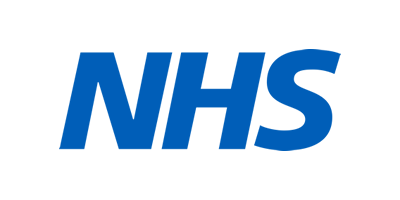


What are T Levels?
Get real-life, industry experience and a technical qualification. T Levels are new courses for post-16 students which can be taken after your GCSEs and are equivalent to three A Levels.
T Levels are a 2-year course that offers a combination of classroom and workplace learning, designed with employers, to give you the skills that industries need. They are ideal for you if you want to get hands-on experience and learn skills that will get you a job in a technical profession, for example, Healthcare, Science, Childcare, Engineering, Accountancy, or Media.
To succeed in your T Level course, you must show technical knowledge, specific learned abilities, concepts, and skills for the industry area, and a basic working knowledge of the occupations and career paths in your chosen field.
Industry Placements
Every T Level includes an on-the-job industry placement with an employer, with 315 hours (approximately 45 days) of content and training within your chosen sector, either as a day release or a block of days together. Workplace learning focuses on developing the practical and technical skills you need.
T Level courses are supported by The Education and Skills Funding Agency (ESFA) and National Apprenticeship Service (part of ESFA), working with employers to design the industry placement around the student.
Subject areas can include:
- Business, Management and Administration
- Creative and Design
- Digital Production, Design and Development
- Education and Childcare
- Engineering
- Health and Science
- Legal, Finance and Accounting
- Mechanical Engineering
- Media, Broadcast and Production
Find out more about our T Level courses below!
T Level courses
Work placements
Subject areas
Facilities and equipment
College life
Support and wellbeing
Open days
Contact us
Frequently Asked Questions (FAQs)
You may have lots of questions about the brand new T Level offering, here we answer some of your frequently asked questions.
A T Level is a 2-year course that combines classroom and practical learning and industry experience to learn the skills and experience needed to succeed in a skilled profession or to progress to more advanced technical education or training. This course is designed for aged 16 learners who have finished their GCSEs and progressing on to study. A T Level is an alternative option to A Levels, Vocational Courses and Apprenticeships.
Employers have helped design these courses with real-life experiences, on-the-job training, and influences into the study programme to provide learners with the industry knowledge, and core skills and develop the confidence needed to enter technical employment.
Learners who pass their T Levels receive a certificate for their specialism.
See our Equivalence Table below of the different course levels needed depending on career levels.

T Levels are based on the same principle as apprenticeships, however, where an Apprenticeship is typically 80% on-the-job and 20% in the classroom, T Levels are more classroom-based but are combined with an industry placement. The total time for the 2-year T Level course is approx. 1,800 hours, a significant increase on current technical education courses.
Yes, all T Level courses are designed by employers and approved by the Institute for Apprenticeships and Technical Education.
On completion of the T Level course, you receive an overall grade of pass, merit, or distinction. This is a nationally recognised certificate that shows your overall grade and a breakdown of what you have achieved (called a statement of achievement).
The T Level certificate includes:
- an overall grade for the T Level, shown as pass, merit, distinction or distinction
- a separate grade for the core component, using A* to E
- a separate grade for each occupational specialism, shown as pass, merit or distinction
The certificate also confirms that you have:
- completed the industry placement
- met any additional mandatory requirements
Maths and English qualifications up to level 2 are also referenced on the T Level certificate and the statement of achievement.
After completing the T Level, you have several options: skilled employment, an apprenticeship, or higher education.
T Levels assessment combines examinations on core skills, with practical skills tests including portfolios, group work, practical projects, and on-the-job tasks set by the employer. T Levels are graded A* – E which is the same as A Levels. There are 3 main development areas:
CORE – Knowledge and understanding
- Provides content relevant to the course
- Contexts, concepts, theories, and principles
CORE – Employer set project
- Skills required to develop a substantial piece of work in response to an employer-set brief
- Opportunity to develop and apply core skills for employability
Occupational specialist content
- Knowledge and skills necessary for employment
- Organised around performance outcomes
Yes, to help T Level students move into higher education, UCAS tariff points are allocated to T Levels, which means you can use these UCAS points to progress on to University. The UCAS points are equivalent to those taking 3 A Levels or Vocational (BTEC) courses.
UCAS points are only allocated to the overall T Level grade, so you must achieve at least an overall pass grade to receive UCAS points.
Once you have achieved your T Level qualification, you have the option to apply and study at university, attain a higher or degree-level apprenticeship, or move into relevant skilled employment.
To be accepted onto a T Level course you need to be aged 16-18 and have a Maths and English GCSE at Grade 4 or above or be working towards them.
See our full list of T Level courses and apply now!
We work with a fantastic range of employers including:
King’s Cross
London
WC1X 8RA
United Kingdom Contact Us







